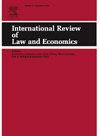城市间饮用水供应合作:交易成本、效率和服务质量之间的权衡
IF 1
3区 社会学
Q3 ECONOMICS
引用次数: 0
摘要
城市间合作经常被宣传为一种改善地方公用事业(如饮用水)管理的解决办法。然而,其有效性仍不明确:尽管整合整合营销可以创造规模经济,但它也可能引发交易成本,从而削弱其效益。在法国,饮用水服务由市一级管理,地方政府可以决定是否合作,如果合作,是采用纯粹的技术合作安排,还是采用政治上更一体化的、超市的治理结构。利用2008年至2021年法国水务公司的综合面板,我们调查了导致市政当局保持独立的因素。我们的计量经济学分析,基于与控制函数方法相关的随机效应概率模型,产生了几个关键的发现。首先,虽然IMC与较高的水价有关,但这些增加的费用被较好的网络性能所抵消,如较低的失水指数和改善的水质所表明的那样。其次,我们发现,在公共管理的公用事业和寻求减少对进口水依赖的市政当局之间,政治上更加一体化的合作形式更为常见。这些发现为公共资源的治理提供了新的见解,表明虽然合作可以改善服务提供,但其制度设计必须仔细平衡组织成本与预期效率收益。本文章由计算机程序翻译,如有差异,请以英文原文为准。
Inter-municipal cooperation in drinking water supply: Trade-offs between transaction costs, efficiency and service quality
Inter-municipal cooperation (IMC) is frequently promoted as a solution to improve the management of local utilities such as drinking water. Yet its effectiveness remains ambiguous: while IMC can create economies of scale, it may also induce transaction costs that undermine its benefits. In France, drinking water services are managed at the municipal level, where local governments can decide whether to cooperate—and if so, whether to adopt a purely technical cooperative arrangement or a more politically integrated, supra-municipal governance structure. Using a comprehensive panel of French water utilities from 2008 to 2021, we investigate the factors that lead municipalities to remain independent. Our econometric analysis, based on a correlated random effects probit model with a control function approach, yields several key findings. First, while IMC is associated with higher water prices, these increased tariffs are offset by better network performance, as indicated by lower water loss indices and improved water quality. Second, we find that the more politically integrated form of cooperation is more common among publicly managed utilities and among municipalities seeking to reduce their dependence on imported water. These findings provide new insights into the governance of common-pool resources, suggesting that while cooperation can improve service provision, its institutional design must carefully balance organizational costs against expected efficiency gains.
求助全文
通过发布文献求助,成功后即可免费获取论文全文。
去求助
来源期刊
CiteScore
2.60
自引率
18.20%
发文量
38
审稿时长
48 days
期刊介绍:
The International Review of Law and Economics provides a forum for interdisciplinary research at the interface of law and economics. IRLE is international in scope and audience and particularly welcomes both theoretical and empirical papers on comparative law and economics, globalization and legal harmonization, and the endogenous emergence of legal institutions, in addition to more traditional legal topics.

 求助内容:
求助内容: 应助结果提醒方式:
应助结果提醒方式:


